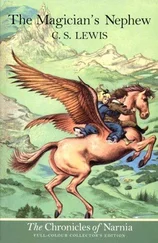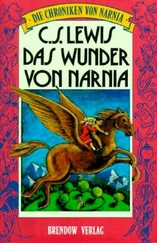Clive Lewis - That Hideous Strength
Здесь есть возможность читать онлайн «Clive Lewis - That Hideous Strength» — ознакомительный отрывок электронной книги совершенно бесплатно, а после прочтения отрывка купить полную версию. В некоторых случаях можно слушать аудио, скачать через торрент в формате fb2 и присутствует краткое содержание. Жанр: Религиоведение, Фэнтези, на английском языке. Описание произведения, (предисловие) а так же отзывы посетителей доступны на портале библиотеки ЛибКат.
- Название:That Hideous Strength
- Автор:
- Жанр:
- Год:неизвестен
- ISBN:нет данных
- Рейтинг книги:5 / 5. Голосов: 1
-
Избранное:Добавить в избранное
- Отзывы:
-
Ваша оценка:
- 100
- 1
- 2
- 3
- 4
- 5
That Hideous Strength: краткое содержание, описание и аннотация
Предлагаем к чтению аннотацию, описание, краткое содержание или предисловие (зависит от того, что написал сам автор книги «That Hideous Strength»). Если вы не нашли необходимую информацию о книге — напишите в комментариях, мы постараемся отыскать её.
That Hideous Strength — читать онлайн ознакомительный отрывок
Ниже представлен текст книги, разбитый по страницам. Система сохранения места последней прочитанной страницы, позволяет с удобством читать онлайн бесплатно книгу «That Hideous Strength», без необходимости каждый раз заново искать на чём Вы остановились. Поставьте закладку, и сможете в любой момент перейти на страницу, на которой закончили чтение.
Интервал:
Закладка:
“And the other a perpetual nuisance,” said Mrs. Dimble.
“Never heed her, Mrs. Studdock,” said MacPhee.
“I am, as I was saying, very glad to welcome you among us. The fact that I have found it my duty on several occasions to point out that no experimentum crucis has yet confirmed the hypothesis that your dreams are veridical, has no connection in the world with my personal attitude.”
“Of course,” said Jane vaguely, and a little confused.
“I’m sure you have a right to your own opinions.” All the women laughed as MacPhee in a somewhat louder tone replied, “Mrs. Studdock, I have no opinions-on any subject in the world. I state the facts and exhibit the implications. If everyone indulged in fewer opinions “(he pronounced the word with emphatic disgust) “there’d be less silly talking and printing in the world.”
“I know who talks most in this house,” said Mrs. Maggs, somewhat to Jane’s surprise.
The Ulsterman eyed the last speaker with an unaltered face while producing a small pewter box from his pocket and helping himself to a pinch of snuff.
“What are you waiting for, anyway?” said Mrs. Maggs.
“Women’s day in the kitchen to-day.”
“I was wondering,” said MacPhee, “whether you had a cup of tea saved for me.”
“And why didn’t you come in at the right time, then?” said Mrs. Maggs. Jane noticed that she talked to him much as she had talked to the bear.
“I was busy,” said the other, seating himself at one end of the table; and added after a pause, “trenching celery. The wee woman does the best she can, but she has a poor notion of what needs doing in a garden.”
“What is ‘women’s day’ in the kitchen?” asked Jane of Mother Dimble.
“There are no servants here,” said Mother Dimble “and we all do the work. The women do it one day and the men the next . . . What ? . . . No, it’s a very sensible arrangement. The Director’s idea is that men and women can’t do housework together without quarrelling. There’s something in it. Of course it doesn’t do to look at the cups too closely on the men’s day, but on the whole we get along pretty well.”
“But why should they quarrel?” asked Jane.
“Different methods, my dear. Men can’t help in a job you know. They can be induced to do it: not to help while you’re doing it. At least it makes them grumpy.”
“The cardinal difficulty,” said MacPhee, “in collaboration between the sexes is that women speak a language without nouns. If two men are doing a bit of work one will say to the other, ‘Put this bowl inside the bigger bowl which you’ll find on the top shelf of the green cupboard.’ The female for this is ‘Put that in the other one in there.’ And then if you ask them ‘in where?’ they say ‘in there of course.’ There is consequently a phatic hiatus.” He pronounced this so as to rhyme with “get at us.”
“There’s your tea now,” said Ivy Maggs, “and I’ll go and get you a piece of cake, which is more than you deserve. And when you’ve had it you can go upstairs and talk about nouns for the rest of the evening.”
“Not about nouns: by means of nouns,” said MacPhee but Mrs. Maggs had already left the room. Jane took advantage of this to say to Mother Dimble in a lower voice, “Mrs. Maggs seems to make herself very much at home here.”
“My dear, she is at home here.”
“As a maid, you mean?”
“Well, no more than anyone else. She’s here chiefly because her house has been taken from her. She had nowhere else to go.”
“You mean she is . . . one of the Director’s charities. ?”
“Certainly that. Why do you ask?”
“Well . . . I don’t know. It did seem a little odd that she should call you Mother Dimble. I hope I’m not being snobbish . . .”
“You’re forgetting that Cecil and I are another of the Director’s charities.”
“Isn’t that rather playing on words?”
“Not a bit. Ivy and Cecil and I are all here because we were turned out of our homes. At least Ivy and I are. It may be rather different for Cecil.”
“And does the Director know that Mrs. Maggs talks to everyone like that?”
“My dear child, don’t ask me what the Director knows.”
“I think what’s puzzling me is that when I saw him he said something about equality not being the important thing. But his own house seems to be run on . . . well on very democratic lines indeed.”
“I never attempt to understand what he says on that subject,” said Mother Dimble. “He’s usually talking either about spiritual ranks-and you were never goose enough to think yourself spiritually superior to Ivy-or else about marriage.”
“Did you understand his views on marriage?”
“My dear, the Director is a very wise man. But he is a man, after all, and an unmarried man at that. Some of what he says, or what the Masters say, about marriage does seem to me to be a lot of fuss about something so simple and natural that it oughtn’t to need saying at all. But I suppose there are young women nowadays who need to be told it.”
“You haven’t got much use for young women who do, I see.”
“Well, perhaps I’m unfair. Things were easier for us. We were brought up on stories with happy endings and on the Prayer Book. We always intended to love, honour, and obey, and we had figures and we wore petticoats and we liked waltzes . . .”
“Waltzes are ever so nice,” said Mrs. Maggs-who had just returned and given MacPhee his slab of cake “so old-fashioned.”
At that moment the door opened and a voice from behind it said, “Well, go in then, if you’re going.” Thus admonished, a very fine jackdaw hopped into the room, followed firstly by Mr. Bultitude and secondly by Arthur Denniston.
“I’ve told you before, Arthur,” said Ivy Maggs, “not to bring that bear in here when we’re cooking the dinner.” While she was speaking Mr. Bultitude, who was apparently himself uncertain of his welcome, walked across the room in what he believed (erroneously) to be an unobtrusive manner and sat down behind Mrs. Dimble’s chair.
“Dr. Dimble’s just come back, Mother Dimble,” said Denniston. “But he’s had to go straight to the Blue Room. And the Director wants you to go to him, too, MacPhee.”
III
Mark sat down to lunch that day in good spirits. Everyone reported that the riot had gone off most satisfactorily, and he had enjoyed reading his own accounts of it in the morning papers. He enjoyed it even more when he heard Steele and Cosser talking about it in a way which showed that they did not even know how it had been engineered, much less who had written it up in the newspapers. And he had enjoyed his morning, too. It had involved a conversation with Frost, the Fairy, and Wither himself, about the future of Edgestow. All were agreed that the government would follow the almost unanimous opinion of the nation (as expressed in the newspapers) and put it temporarily under the control of the Institutional Police. An emergency governor of Edgestow must be appointed. Feverstone was the obvious man. As a member of Parliament he represented the Nation, as a Fellow of Bracton he represented the University, as a member of the Institute he represented the Institute. All the competing claims that might otherwise have come into collision were reconciled in the person of Lord Feverstone; the articles on this subject which Mark was to write that afternoon would almost write themselves! But that had not been all. As the conversation proceeded it had become clear that there was really a double object in getting this invidious post for Feverstone. When the time came, and the local unpopularity of the N.I.C.E. rose to its height, he could be sacrificed. This, of course, was not said in so many words, but Mark realised perfectly clearly that even Feverstone was no longer quite in the Inner Ring. The Fairy said that old Dick was a mere politician at heart and always would be. Wither, deeply sighing, confessed that his talents had been perhaps more useful at an earlier stage of the movement than they were likely to be in the period on which they were now entering. There was in Mark’s mind no plan for undermining Feverstone nor even a fully formed wish that he should be undermined: but the whole atmosphere of the discussion became somehow more agreeable to him as he began to understand the real situation. He was also pleased that he had (as he would have put it) “got to know” Frost. He knew by experience that there is in almost every organisation some quiet, inconspicuous person whom the small fry suppose to be of no importance but who is really one of the mainsprings of the whole machine. Even to recognise such people for what they are shows that one has made considerable progress. There was, to be sure, a cold fish-like quality about Frost which Mark did not like and something even repulsive about the regularity of his features. But every word he spoke (he did not speak many) went to the root of what was being discussed, and Mark found it delightful to speak to him . . . The pleasures of conversation were becoming, for Mark, to have less and less connection with his spontaneous liking or disliking of the people he talked to. He was aware of this change-which had begun when he joined the Progressive Element in college-and welcomed it as a sign of maturity.
Читать дальшеИнтервал:
Закладка:
Похожие книги на «That Hideous Strength»
Представляем Вашему вниманию похожие книги на «That Hideous Strength» списком для выбора. Мы отобрали схожую по названию и смыслу литературу в надежде предоставить читателям больше вариантов отыскать новые, интересные, ещё непрочитанные произведения.
Обсуждение, отзывы о книге «That Hideous Strength» и просто собственные мнения читателей. Оставьте ваши комментарии, напишите, что Вы думаете о произведении, его смысле или главных героях. Укажите что конкретно понравилось, а что нет, и почему Вы так считаете.












